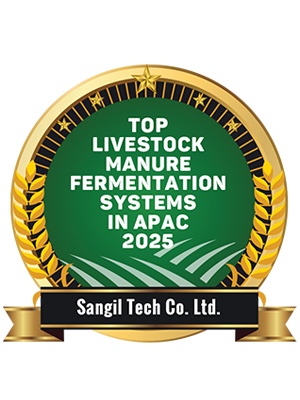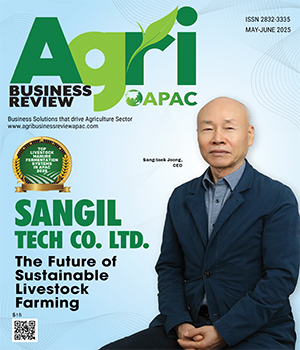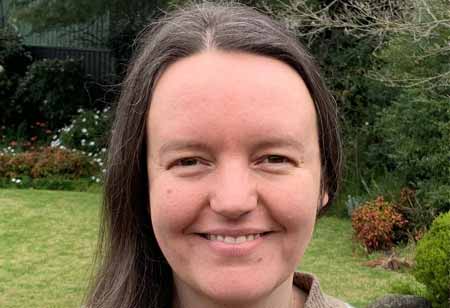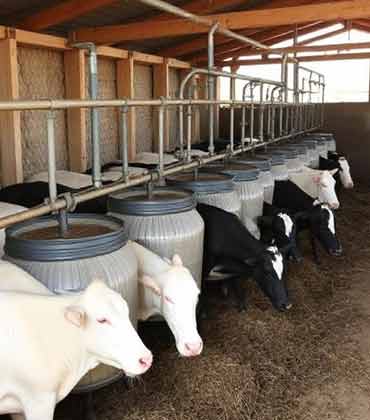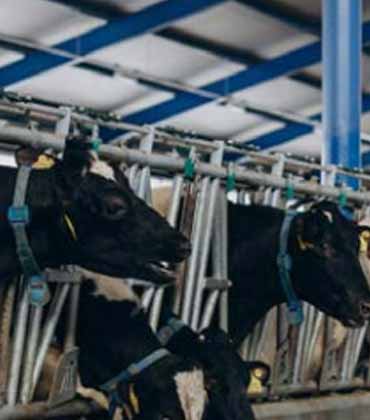Thank you for Subscribing to Agri Business Review Weekly Brief
Agri Business Review: Specials Magazine
Transforming organic waste into a valuable resource is the next frontier in sustainable livestock farming. This shift is critical for pig, cattle and poultry farms to effectively manage the large quantities of manure produced daily. Sangil Tech Co. Ltd. turns what was once an environmental and logistical headache into a valuable resource with its Tower Compo composting system. Its vertical, enclosed, high-speed fermenter converts livestock manure into nutrient-rich compost, making the process simpler, faster and more cost-effective. Farms can enhance efficiency while reinforcing environmental responsibility. “Our product helps farms save time and money, making waste management more environmentally friendly,” says Sang-taek Jeong, CEO. No two farms are alike. They differ in moisture levels, manure composition and microbial activity. Sangil Tech’s system is designed to adapt to specific farm conditions through customization, serving diverse livestock operations and facilities like liquid fertilizer distribution centers, slaughterhouses and food processing plants. Irrespective of the environment, the system eliminates expensive and labor-intensive manure management practices and eases storage and disposal concerns. As the largest livestock environment machinery manufacturer in Korea, Sangil Tech has successfully installed over 1,000 composting systems in many countries including South Korea, Japan, Vietnam and India, with high satisfaction rates among customers. Its commitment extends beyond installation, offering tailored solutions, hands-on training and after-sales support to ensure maximum benefits to clients. Farms can expect a full return on investment—including product cost, installation and electricity within 3.5 years to 5 years, depending on the machine operation environment, moisture content, cost of electricity and compost selling price. Why Tower Compo? The Tower Compo is an eco-friendly, cost-effective solution that enhances efficiency while reinforcing environmental responsibility. The cost of waste disposal and treatment are rising, placing a significant financial strain on livestock farms. Prolonged manure storage also causes serious environmental and health risks. Unpleasant odor creates discomfort for farm workers and nearby communities, while the accumulation of toxic gases like ammonia and methane exacerbates carbon emissions. The risk of infectious diseases, such as bird flu and foot-and-mouth disease, can restrict the transport of manure offsite, further complicating waste management.
Livestock Genomics Testing Company of the Year in APAC 2025
Genomics is transforming agriculture, and Neogen—a global leader in food security and agricultural innovation—is at the forefront of this evolution with five DNA laboratories located strategically around the world. While its operations span multiple regions, the firm remains committed to delivering localized solutions that maximize value for customers in the APAC region. In line with this commitment, Neogen provides livestock producers in Australia and New Zealand with advanced DNA testing solutions tailored to enhance breeding decisions, improve herd efficiency and drive genetic progress. Farmers gain valuable insights into meat quality, fertility, disease resistance, and parentage verification through bovine and ovine genomic testing, helping them optimize herd management and productivity. This commitment to tailored innovation is what sets Neogen apart. Rather than taking a one-size-fits-all approach, the company collaborates closely with industry groups, breeders and food producers to develop genomic tools designed to address region-specific challenges. With a state-of-the-art laboratory facility in Bundamba, Neogen can process up to one million genomic tests annually, utilizing cutting-edge robotic processing and advanced genomic selection technologies. By providing data-driven, science-backed insights, Neogen enables livestock producers to improve profitability, strengthen herd genetics and ensure sustainable, high-performing agricultural systems. As the demand for precision breeding and enhanced food security grows, it helps producers achieve long-term success in an evolving agricultural landscape. Unlocking Genetic Potential with Early Insights Traditional livestock breeding relied heavily on visual assessments and pedigree records, leading to uncertainties in genetic selection. With the advent of genomic testing, farmers can make more accurate predictions of an animal’s future performance. “Genomics is enabling us to make more accurate selection decisions and identify animals with superior genetics at an earlier age than ever before,” says Andrew Byrne, Senior Technical Product Specialist at Neogen. “This technology boosts growth, carcass quality and sustainability traits like lower methane emissions and stronger immunity.”.
CXO INSIGHTS

Precise Nutrition Meets the Digital Age
Julien Mailliu, Digital Apps Manager, ADM Animal Nutrition

Six Sigmas Impact on the Agriculture Industry
Robert King, Executive Vice President (& President), Crop Protection Business, Corteva Agriscience

Indoor Farming at Pan American Seed
Gus Tassara, Global Director Seed Production, Ball Horticultural Company
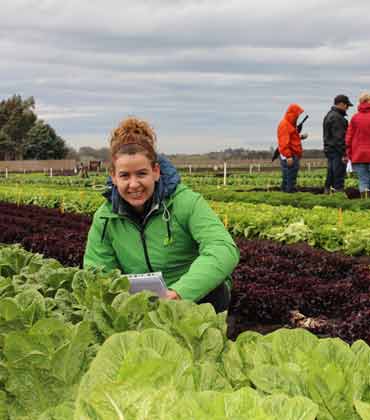
Securing our food future
Frances Tolson, Product Development Manager, Rijk Zwaan

Organic Fertilizer and Precision Farming
Kantapat Jaruprompong, Farm System and Poultry Welfare Manager, Tyson Foods (Thailand)

Driving Growth Through Innovative Strategies
Tom Marzella, Commercial Director - Oceania, Glanbia Nutritionals

The New Frontier of Sustainability
Paul Bonnett, Senior Director of Agronomy & Environmental Sciences, Nutrien[NYSE: NTR]
IN FOCUS
The Role of Livestock Manure Fermentation Systems in Advancing Sustainable Waste Management in APAC
The Asia-Pacific (APAC) region, a global agricultural powerhouse, is at a transformative crossroads with its extensive livestock industry.
Shaping the Future of Livestock Breeding Through Genomics in APAC
The continued advancements in genomic technologies and their strategic application hold the key to unlocking livestock's full potential in meeting the region's growing demands.
EDITORIAL
Waste-Free and FutureReady Livestock Farms in Asia-Pacific
In countries like Vietnam, Indonesia, and the Philippines, where managing livestock waste has always been a struggle, manure fermentation systems are making a significant impact. These systems take animal waste and transform it into biogas and organic fertilizer. Instead of being a problem, waste is becoming a resource that reduces emissions, improves rural sanitation, and provides renewable energy for farm operations. This shift is also contributing to national sustainability goals and supporting climate commitments across the region.
Meanwhile, livestock genomics is making waves in markets like Australia, India, and Thailand. Through DNA analysis, farmers can pinpoint the best genetic traits, allowing them to breed healthier, more efficient animals. This precision approach not only boosts disease resistance and feed efficiency but also helps smallholders and cooperatives get the most out of their limited resources. It is about breeding smarter, not harder, to increase productivity and sustainability.
Together, these technologies offer a circular, data-driven approach to farming: genomics enhances productivity at the source, while fermentation systems close the loop through smart waste utilization. The result is a more resilient and sustainable livestock sector tailored to APAC’s diverse agricultural landscape.
In this edition, we feature insights from Maria Hoertrich, Head of Quality, Monde Nissin, and Antoni Simamora, Environmental & Sustainability Senior Asst. Manager, First Resources. They share their perspectives on the evolving landscape of sustainable agrifood practices discussing how innovations in waste management, traceability, and technology are redefining quality standards and environmental impact. From fermentation systems that reduce emissions to genomics enhancing livestock productivity, their views offer valuable context on the trends driving resilient, responsible food systems in Asia-Pacific.

